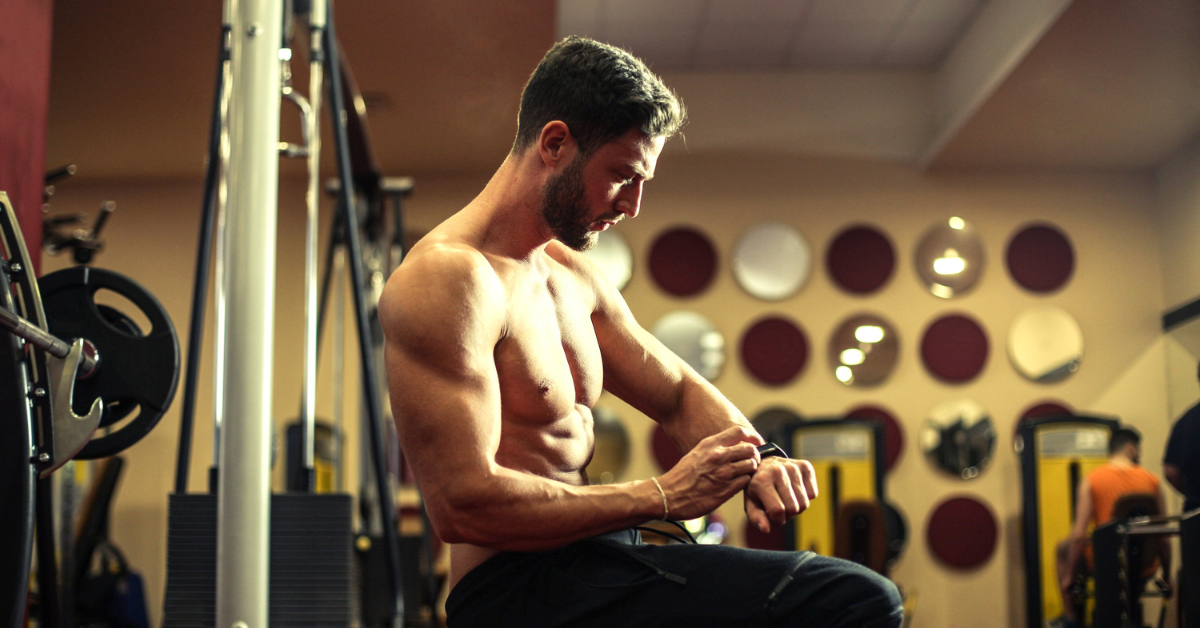
Navigating the world of pre-workouts can be confusing, especially regarding timing.
This guide aims to explain that process, offering science-backed insights to help you get the most out of your pre-workout supplement.
The ideal time to take your pre-workout is generally 30-45 minutes before exercise, but factors like metabolism and the type of workout can influence this timing.
Understanding the science behind these factors can significantly enhance your workout performance and overall results.

Why does the timing of your pre-workout matter?
Well, research in sports nutrition shows that timing can significantly impact the effectiveness of your workout.
The key ingredients in pre-workouts, like caffeine and beta-alanine, have their absorption rates and peak effectiveness times.
Most experts recommend taking your pre-workout 30-45 minutes before hitting the gym.
This allows enough time for the ingredients to kick in but not so much time that their effects wane.
Personal factors like your metabolic rate and the type of exercise you're doing can affect the ideal time to take your pre-workout.
Some people might need more time for the ingredients to kick in, while others might need less.
Hydration can affect how quickly your body absorbs the pre-workout.
Make sure you're well-hydrated before taking your supplement to ensure maximum effectiveness.
Being well-hydrated can significantly impact how effectively your body absorbs the pre-workout ingredients.
Dehydration can slow down this process and may even lead to cramping during your workout.
Depending on your fitness goals, You can customize your pre-workout by adding ingredients like BCAAs or creatine.
Adding creatine to your pre-workout can be beneficial if you want to build muscle.
For endurance athletes, BCAAs can be a great addition.
Your diet can also play a role in how effective your pre-workout is.
A balanced meal can provide sustained energy, making your pre-workout more effective.
A balanced diet of carbohydrates and protein can provide sustained energy, making your pre-workout more effective.
The type of exercise you're doing can also affect when you should take your pre-workout.
For cardio, taking your pre-workout about 30 minutes before you start is best.
For weightlifting, you might want to wait a bit longer, around 45 minutes, for the ingredients to kick in fully.
Different pre-workout supplements contain various active ingredients, each with benefits and optimal timing.
Citrulline is often included in pre-workout supplements for its vasodilating effects, which can improve blood flow and potentially enhance exercise performance.
However, the efficacy of citrulline in improving aerobic exercise performance remains ambiguous.
One study found no significant benefits, while another reported enhanced athletic performance indicators when citrulline was taken for 7 to 16 days.
The timing for citrulline to kick in is generally around 20-30 minutes, making it ideal to take at least 20 minutes before your workout.

Caffeine is another common ingredient, known for its energy-boosting properties.
But not all caffeine is created equal.
Caffeine malate and caffeine citrate are two forms that are often mixed in pre-workout supplements.
These forms are released at different rates, so you may need more time for the full effects.
Some pre-workouts mix multiple forms of caffeine, like caffeine malate and caffeine citrate.
While this can provide a sustained release of energy, it may also require more time for the full effects to manifest.
Therefore, taking your pre-workout at least 20 minutes before starting your workout can be beneficial.
One of the most common side effects of pre-workout supplements is the jitters or anxiety, often due to high levels of caffeine.
This source provides a comprehensive look at stimulants in pre-workouts.
Some people report digestive issues like nausea or diarrhea after taking pre-workout supplements.
This could be due to certain ingredients or simply the concentration of the supplement.
High doses of caffeine and other stimulants can lead to heart palpitations.
Research indicates that a specific blend containing citrulline malate did not significantly affect a standardized assessment of upper-body muscular endurance but did affect heart rate.
One of the most common side effects of pre-workout supplements is the jitters or anxiety, often due to high levels of caffeine.
For a comprehensive look at stimulants in pre-workouts, check out this article on what is stim in pre-workout.
It's crucial to consider how your pre-workout may interact with other supplements you're taking.
For instance, taking it with other caffeine-containing supplements could lead to an overdose of stimulants.
People with heart conditions, high blood pressure, or anxiety disorders should consult their healthcare providers before taking pre-workout supplements.
For more insights on the timing of pre-workout supplements, read this article on how long after taking pre-workout can I workout.
If you're wondering about the duration of pre-workout effects, this piece on how long pre-workout lasts has you covered.
Be cautious with the maximum dosing of pre-workouts, especially those high in stimulants.
Side effects can include jitters, insomnia, and even heart palpitations.
Always consult with a healthcare provider if you're unsure.
It's crucial to read the label on your pre-workout supplement carefully.
Overdosing stimulants can lead to side effects, including jitters and heart issues.
Pre-workouts are generally for those looking to boost their athletic performance.
However, they're not for everyone.
Athletes, bodybuilders, and fitness enthusiasts can benefit the most from pre-workout supplements.
However, starting with a lower dose and consulting a healthcare provider is best if you're new to the fitness world.
People with certain medical conditions or those sensitive to stimulants should avoid pre-workouts.
If you have a medical condition like high blood pressure or are sensitive to caffeine, it's best to avoid pre-workout supplements or opt for a stimulant-free version.

Is it safe to take a pre-workout every day?
While it's generally safe for most people to take pre-workout supplements daily, it's advisable to cycle off occasionally to prevent tolerance build-up, especially stimulants like caffeine.
What should I do if I experience side effects from my pre-workout?
If you experience side effects like jitters or digestive issues, consider reducing the dosage or switching to a different brand with milder ingredients.
Can I mix my pre-workout with other supplements?
Yes, but be cautious of potential interactions, especially with other stimulant-containing supplements.
How long does it take for pre-workout to kick in?
Most pre-workouts take about 20 to 30 minutes to kick in, but this can vary based on the ingredients and your metabolism.
How long do the effects of pre-workout last?
Depending on the ingredients and your response, the effects typically last between 1 to 4 hours.
Can I take pre-workout on an empty stomach?
While some people prefer taking pre-workout on an empty stomach for quicker absorption, others may experience digestive issues. It's best to experiment and see what works for you.
Is pre-workout suitable for cardio workouts?
Yes, but opt for a pre-workout focusing on endurance and energy rather than muscle pumps, which are more beneficial for weightlifting.
Can I take pre-workout if I have a medical condition?
If you have a medical condition, especially heart-related issues or high blood pressure, consult your healthcare provider before taking any pre-workout supplement.
Do I need to cycle off pre-workout?
It's a good idea to cycle off pre-workout every few weeks to prevent tolerance and dependency, especially to stimulants.
What are natural alternatives to pre-workout supplements?
Natural alternatives include foods rich in nitrates like beets and caffeine sources like coffee or green tea.
The timing of your pre-workout can make or break your workout.
Understanding the science behind pre-workout timing and adjusting based on your needs can maximize your performance and results.
Useful Links
 About FitFrek
About FitFrekFitFrek operates as an independent platform, offering comprehensive workouts, programs, routines, guides, and unbiased reviews to accelerate your progress. We pride ourselves on our honesty, delivering straightforward and candid insights. FitFrek does not offer medical advice, diagnosis, or treatment services.